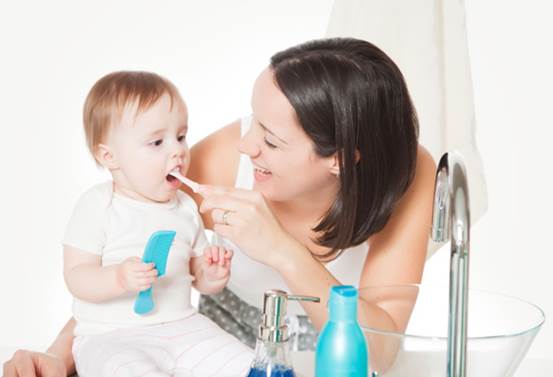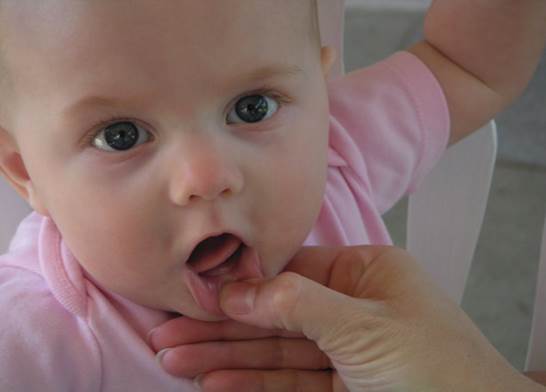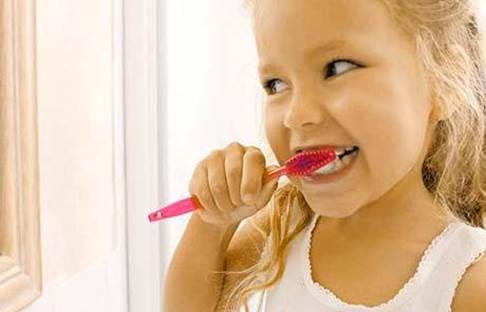The baby's first set of teeth are as important
as her adult teeth. According to experts, the "baby teeth' are responsible
for helping the baby learn to chew and speak, and they also hold the space for
adult teeth when they develop under the gums. Please help your baby develop
good oral hygiene habits by limiting using sweet things and teaching her to
brush her teeth appropriately at an early age.

You
should start brushing your baby's teeth by using a small amount of water as
soon as the first tooth appears
Infancy
You should start brushing your baby's teeth by
using a small amount of water as soon as the first tooth appears. You can also
rub a wet washcloth gently along her gums to clean bacteria and prevent tooth
decay. This action helps her acquaint with cleaning her teeth, and will make
her more receptive when you start using a toothbrush. You’d better use clean
water to brush her teeth until she is 2 years old, unless advised otherwise by
your dentist.

You’d
better use clean water to brush her teeth until she is 2 years old
Brush a toddler’s teeth
Most of the toothpastes contain fluoride, not
meant to be swallowed. After your baby is 2 years old, the risk of swallowing
too much fluoride is reduced. Use a small amount and encourage your baby to
spit out the remaining toothpaste and rinse her mouth after. Once she grasps
the concept of spitting, you can use more toothpaste. According to experts,
swallowing too much toothpaste can cause stomach pain and can cause intestinal
obstruction, along with shock, tremors and vomiting.
Independence

Experts
recommend brushing twice a day, and state that at 6 or 7 years old most
children will be able to brush their teeth without help
You should monitor your baby to make sure she
understands the brushing and does not forget to rub her tongue to stop bad
breath. Experts recommend brushing twice a day, and state that at 6 or 7 years
old most children will be able to brush their teeth without help.
See a dentist
Experts recommend parents schedule their
baby’s first dentist appointment when she has the first tooth, but not longer
than a year old. This helps your baby get used to the dentist and allows the
dentist to make sure everything is properly developing. Your dentist can also
find out complications that can occur as a result of acts like thumb sucking.